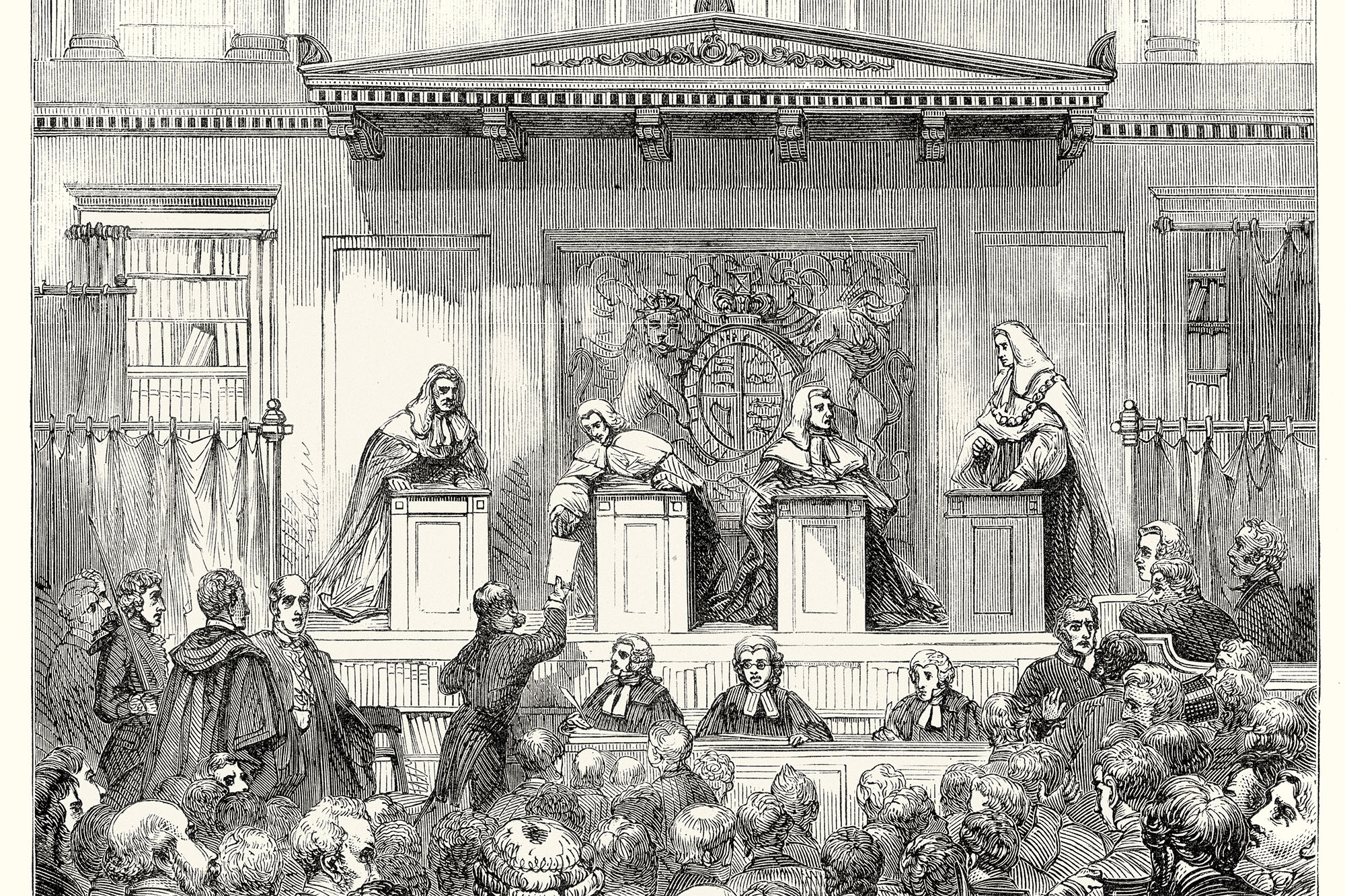Feature
 Court Administration
Court Administration
The Courthouse Ethics and Transparency Act: New Obligations for Federal Judges
by Albert Diaz and Steven J. Alagna
Vol. 107 No. 2 (2023) | Generative AI in the CourtsThe debate over an ethics code for Supreme Court justices has made headlines recently. But the justices — along with the rest of the federal judiciary — have long been […]
 Technology
Technology
Is Disclosure and Certification of the Use of Generative AI Really Necessary?
by Paul W. Grimm, Maura R. Grossman and Daniel G. Brown*
Vol. 107 No. 2 (2023) | Generative AI in the CourtsThe news abounds with articles on the promises — and perils — of generative AI (GenAI) […]
 Court Administration, Judging
Court Administration, Judging
What Can Be Done About Backlogs?
by Merritt McAlister, Adalberto Jordán and Kimberly J. Mueller
Vol. 107 No. 2 (2023) | Generative AI in the CourtsNo new judgeships have been authorized for the federal courts of appeals in more than 40 years, resulting in a system that is burdened by large caseloads: By 2021, filings […]
 Technology, Criminal Law, Constitutional Law
Technology, Criminal Law, Constitutional Law
Judging Firearms Evidence and the Rule 702 Amendments
by Brandon Garrett, Nicholas Scurich, Eric Tucker and Hannah Bloom
Vol. 107 No. 2 (2023) | Generative AI in the CourtsForensic firearms identification involves linking evidence collected from crime scenes — namely, fired cartridge casings and bullets — to a particular firearm. Two assumptions underlie this identification process: First, firearms […]
 Judging, Law & Culture
Judging, Law & Culture
En Banc or In Bank? Take a Seat . . .
by Matt Liles* and Anthony B. Sanders†
Vol. 107 No. 2 (2023) | Generative AI in the CourtsWhy do judges and lawyers use the phrase “en banc”? Why not just say “the whole court” instead of getting all Continental? If the King’s English was good enough for […]
 Law & Culture
Law & Culture
Inheritance of Hope
Vol. 107 No. 2 (2023) | Generative AI in the CourtsThirty-three years after Martin Luther King’s “I Have a Dream” speech at the Lincoln Memorial, I visited Washington, D.C., for the first time. It was Tuesday, Nov. 5, 1996 — a presidential Election Day. […]
 Civil Law, Court Administration
Civil Law, Court Administration
Should the Federal Rules of Civil Procedure Be Amended to Address Cross-Border Discovery?
by Michael M. Baylson and Steven S. Gensler
Vol. 107 No. 2 (2023) | Generative AI in the CourtsIn today’s world of borderless commerce, digital documents, and cloud storage, information relevant to U.S. litigation frequently is located outside of the United States. When discovery in a U.S. case […]
 Judging, Law & Culture
Judging, Law & Culture
In Daniel’s Name
by Esther Salas and Robin L. Rosenberg
Vol. 107 No. 2 (2023) | Generative AI in the CourtsDaniel Mark Anderl gave his life to protect his parents. Now his parents are making sure his heroic act also protects other judges and their families. In July 2020, an […]
 Global, International
Global, International
Climate Change Litigation: Challenging the Horizons of Law
Judicature International (2023) | An online-only publicationThe year 2023 has offered the world a dramatic view of life in the age of climate change. Massive wildfires in Canada have burned more than 25 million acres and released […]
 Judging
Judging
If Pseudonyms, Then What Kind?
Vol. 107 No. 1 (2023) | Toward Fairer, Quicker, Cheaper LitigationWriters may have their noms de plume; revolutionaries may have noms de guerre. Here, though, we will speak of (to coin a phrase) the noms de litige, and ask: When […]

